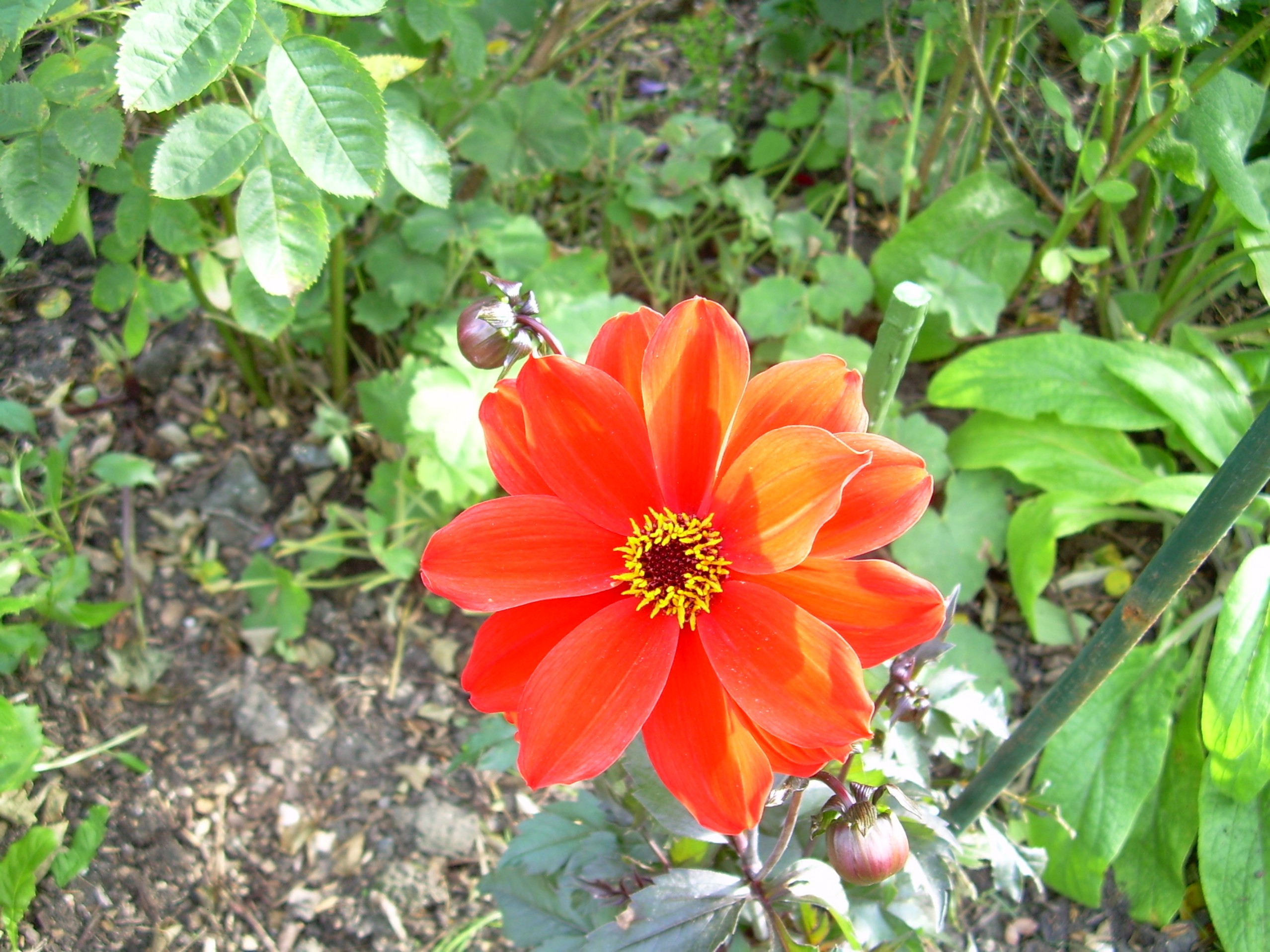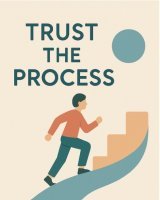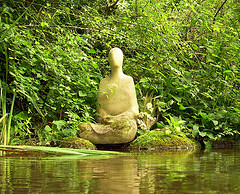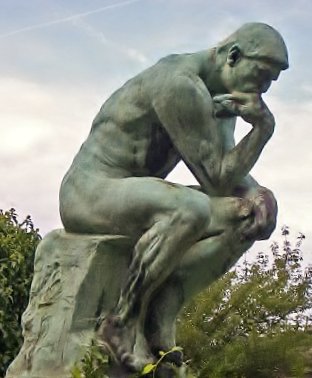Let Stillness Speak
Living Within A Complex System

What Does It Mean To Let Stillness Speak?
To let stillness speak is about stepping back from the constant chatter of your mind and allowing a deeper, quieter presence to communicate.This is not about some woolly, fuzzy, feel-good vibe. This is about accessing a consciousness that lies deep within you - far deeper than thought.
This is about tuning in to the profound wisdom, creativity and peace that emerges in periods of inner stillness.
This consciousness:
- Expresses itself when you are fully present.
- Frees you from the suffering we all inflict on ourselves and each other with our delusions and our dogmas.
- Sits behind your thought-stream that has such momentum and that drags you along in its wake, deluding you that every thought matters so much, as it constantly updates your narrative of "my life".
- Transforms how you think and act.
- Is the very essence of who you are.
In the major faith traditions this consciousness is referred to as the Christ within, the Buddha nature, Atman in Hindu and Fitra in Islam.
To let stlllness speak is to learn it's first major lesson: you are not your thoughts.
Further Reading & Resources:
Everything Is Connected And Why You Don't Feel It
Who Is In Charge Of Your Brain - How Not To Be Stupid
The Illusion Of A Separate Self - Windows 11 With Self Awareness!
How To Let Stillness Speak
Here are some actions and supporting practices that can help you access this stillness and let it speak in your life:
- Embrace Silence - Set aside time each day to simply sit in silence. This could be a few minutes in the morning, or small pauses throughout your day.
- Notice the Space Between Thoughts - In these small gaps, there’s a silence that holds insight and presence, rest in these quiet spaces, experiencing the mind as something beyond its usual stream of thoughts.
- Connect with Your Inner Presence - By focusing on your breath, heartbeat, or a feeling of awareness, you can connect with this peaceful inner presence.
- Observe Without Reacting - In stillness, you can observe thoughts and emotions without reacting or identifying with them.
- Listen to Intuitive Insights - Stillness often allows intuitive insights to surface. In this quiet, your deeper mind can speak more freely, offering guidance or a fresh perspective.
- Embrace the Present Moment Fully - Let stillness speak and surrender fully to the present moment, not waiting for anything to happen or change.
- Practice “Being” Rather than “Doing” - In our busy lives, we often measure ourselves by what we accomplish. Stillness invites you to simply "be", to rest in the awareness of your own existence without the need to achieve anything.
- Let Go of the Need to “Know” or Control - Stillness often “speaks” in the form of surrender. Releasing the need to control everything or to have all the answers can be liberating.
- Feel the Depth of Gratitude and Compassion - In stillness, gratitude and compassion often arise naturally revealing the interconnectedness of all life and our capacity for love and understanding.
- Recognize Stillness as a Source of Strength - When you let stillness speak, it becomes a source of courage and wisdom that guides you through difficult times.
- Trust the Wisdom that Emerges - When insights arise in stillness, trust them. Let this wisdom guide you.
Further Resources:
Freeing Yourself From Your Mind - 6 Key Practices From Eckhart Tolle
How To Practice Mindfulnes- Drop The Cushion, Focus Your Mind On Now
What Has Stillness Got To Do With Thinking Skills?
Zen Tools is all about learning 2 key skills:
Developing these skills matters because, over the long term, the outcomes that you experience are determined by how you respond to the events in your life.
Many of the things that happen in your life are random and beyond your control.
But, the one thing you can control is how you choose to respond to these events - and it is a choice.
The long term impact of these choices can have a major effect on your health, wealth and happiness.
So it follows that the stronger your response - the better the outcome.
The first fundamental truth to take on board is that your conscious mind is limited in so many ways.
But, your mind isn't going to stop thinking on demand. So the most effective way of achieving this is with the zen practise of mindfulness.
Zen simply means: "direct experience in seeing things as they really are".
The goal of mindfulness isn't to suppress thinking, but to surpass it and to experience that you are not your thoughts and to learn how to respond to your thoughts resourcefully.
Here are 4 personal takeaways on learning how to stop thinking and let stillness speak:
- I have always been someone who overthinks things, and this practice of mindfulness has provided me with a sanctuary and refuge from the tyranny of my thinking mind and given me an opportunity to recharge my mental, emotional and spiritual batteries
- I find that letting stillness speak really does allow new ideas and fresh insights to emerge. I find that the space that arises between the thoughts in my thinking mind is a very fertile and creative space.
- I also find that I get answers to questions and clarity about direction - which are often counter-intuitive.
- I make better decisions and I am more able to live with those decisions.
Here is a fuller list of the benefits of learning how to stop thinking
Letting Stillness Speak When Living In A Complex System
Life is more than complicated, it is complex.
To be clear, a complicated system can be seen as the sum of the parts whereas a complex system is greater than the sum of the parts.
Complicated systems fall within classic Newtonian thinking - the mechanical universe which is all about: Predictability, Reductionism, Determinism, Cause and Effect, Equilibrium and Centralised Top-Down Control
With a complicated system if you understand the part then you can understand the system.
Whereas, complex systems involves a holistic approach which focuses on the dynamics of the interactions between the multiple component parts of the system and is all about: Emergent Behavior, Nonlinear Interactions, Adaptation and Learning, Unpredictability and Uncertainty of Outcome, and Distributed Control.
With a complex system if you understand the dynamics of the parts you can gain better understanding of the system.
Examples of complex systems include:
- Ecosystems: Interactions between species and the environment create unpredictable and adaptive dynamics.
- Financial Markets: Market behaviour emerges from the interactions of countless investors, institutions, and external factors.
- The Human Brain: Billions of neurons interact in ways that produce consciousness, cognition, and behavior.
- Social Networks: Individuals' behaviors, relationships, and influences form emergent patterns like trends, opinions, and movements.
We are all working with complex systems, and we do so every day. The biggest one is life itself.
Understanding complex systems [and knowing how to work with them] is an important thinking skill.
Traditional thinking is not enough, dealing with complexity requires a more intuitive and collaborative approach.
Living within a complex system means navigating a world where multiple interdependent factors interact in often unpredictable ways.
When living within a complex system, knowing how to "do without doing" is an important skill.
These skills and practices are deeply intuitive and are all about influence rather than control, and it is critical to let stillness speak into your thought processes and decision making.
Let's take a deeper look at how to navigate and thrive living within a complex system.
1. Recognize Interconnectedness
Complex systems involve networks of relationships where each element affects others.
Understanding this interconnectedness can help you see that actions have ripple effects.
For example, in society, individual actions contribute to larger social trends.
2. Embrace Uncertainty and Adaptability
Complex systems are often unpredictable because they change dynamically over time.
Adapting to this means developing flexibility and being comfortable with ambiguity.
Instead of trying to control or predict every outcome, let stillness speak as you focus on building resilience and learning to adapt to change.
3. Focus on Relationships and Feedback Loops
In complex systems, feedback loops—where outputs from a process feed back into it as inputs—can create cycles of growth or balance.
Positive feedback loops reinforce a trend, while negative feedback loops create balance.
Understanding these cycles and letting stillness speak can help you make more informed choices, like reducing waste to prevent environmental damage or fostering positive relationships to reinforce community bonds
4. Seek Patterns and Emergent Properties
Patterns often emerge in complex systems, even if individual actions seem random or isolated.
Observing these patterns can help you make sense of complexity.
For example, cities, as complex systems, exhibit patterns in traffic flow, economic activity, and social interactions that emerge from individual choices.
5. Think Holistically, Act Locally
Holistic thinking is crucial in complex systems.
By considering how parts interact, you gain a broader perspective.
However, meaningful change often starts locally.
For instance, if you want to influence environmental change, start with sustainable habits in your own life, understanding they contribute to larger ecological systems.
6. Be Aware of Nonlinearity
In complex systems, small actions can sometimes lead to large, unexpected changes, while large actions might have minimal impact.
This nonlinearity is essential in fields like public health or social change, where small community efforts might spark larger movements.
7. Emphasize Diversity and Collaboration
Diverse systems are more resilient.
In nature, ecosystems with diverse species adapt better to change.
Similarly, diverse perspectives and collaboration in human systems—like communities or organizations—strengthen adaptability and creative problem-solving.
8. Develop Systems Thinking Skills
Systems thinking involves understanding the whole picture instead of isolated parts.
Learning to see the connections and interdependencies can help you identify leverage points—small actions that create significant changes.
For example, in organizations, a single shift in leadership approach might improve morale and productivity widely.
9. Accept Limits to Knowledge and Control
In complex systems, it’s impossible to have complete information or control.
Recognizing this can prevent frustration and encourage an experimental mindset, where you try different approaches, observe outcomes, and adjust as you learn.
10. Cultivate Long-Term Perspective and Patience
Many outcomes in complex systems unfold slowly.
Sustainable farming, education reform, or personal growth are all areas where long-term thinking is essential.
Focus on gradual progress rather than quick fixes.
11. Practice Reflection and Mindful Decision-Making
Living consciously and being able to let stillness speak within a complex system helps to develop a reflective approach.
Consider the potential impacts of your decisions on the larger system, and make choices aligned with your values and an awareness of broader outcomes.
12. Understand Boundaries and Tensions
Complex systems often involve competing needs or tensions—such as economic growth vs. environmental protection.
Learning to balance these tensions and make compromises can help you navigate complex systems in a way that respects both the whole and its parts.
Useful Further Reading:
When You Stop Doing, Life Speaks
Doing nothing can be deeply productive. Transformation doesn't require more, but less: "Subtraction Reveals Essence".
Further Reading & Resources:
Living In A Participatory Universe
Law Of Response And Outcome - A New Approach To A New Life
The Red Pill - This Is What Will Happen After You Take It
How To Wake Up - 4 Simple Practices To Help You Wake Up Now
The Greatest Love - The Most Important Relationship You Will Ever Have
Coram Deo - Living In Consciousness
Return from "Let Stillness Speak" to: Walking The Talk
Next Article:
Understanding Complex Systems Thinking - It's Not Complicated
LATEST ARTICLES
The Battle For Your Mind - How To Win Inner Freedom In A Digital Age Of Distraction
 From External Events to Inner Events. We often think of “events” as things that happen out there: the traffic jam, the rude comment, the delayed email reply. But what truly shapes our experience is wh…
From External Events to Inner Events. We often think of “events” as things that happen out there: the traffic jam, the rude comment, the delayed email reply. But what truly shapes our experience is wh…How to See Your Thoughts Without Becoming the Story
 A Practical Guide to Thought-Awareness. You can spend your life inside the stories of your mind without ever learning how to see your thoughts clearly and objectively. Most of the stuff we tell oursel…
A Practical Guide to Thought-Awareness. You can spend your life inside the stories of your mind without ever learning how to see your thoughts clearly and objectively. Most of the stuff we tell oursel…The Collison Decision Matrix - A Simple Framework for Better Choices
 The Collison Decision Matrix Is A Practical Everyday Thinking Tool. Most of us spend a surprising amount of time worrying about decisions. From small ones such as what to wear, what to eat, what to te…
The Collison Decision Matrix Is A Practical Everyday Thinking Tool. Most of us spend a surprising amount of time worrying about decisions. From small ones such as what to wear, what to eat, what to te…The Power Of Asking The Right Question
 The Power Of Asking The Right Question Lies In The Quest For Insight. To experience the power of asking the right question you must develop the practice of asking questions. The best way to improve th…
The Power Of Asking The Right Question Lies In The Quest For Insight. To experience the power of asking the right question you must develop the practice of asking questions. The best way to improve th…Site Pathways
 Here is a site pathway to help new readers of Zen-Tools navigate the material on this site. Each pathway is based around one of the many key themes covered on this site and contain a 150 word introduc…
Here is a site pathway to help new readers of Zen-Tools navigate the material on this site. Each pathway is based around one of the many key themes covered on this site and contain a 150 word introduc…How To Live With Contradiction - Beyond Thought Let Stillness Speak
 A major impact on so many peoples' lives is the situational contradiction of unfilled realistic expectations. So where does all this leave us? Well here we are, with mental equipment that is more lim…
A major impact on so many peoples' lives is the situational contradiction of unfilled realistic expectations. So where does all this leave us? Well here we are, with mental equipment that is more lim…How To Trust The Process Of Mindfulness - Right Now
 In mindfulness, the process isn’t some distant goal — it's what is happening right now. When we talk about how to trust the process of mindfulness the credibility of the process is heavily dependent…
In mindfulness, the process isn’t some distant goal — it's what is happening right now. When we talk about how to trust the process of mindfulness the credibility of the process is heavily dependent…Inner Mastery For Outer Impact - Mental Clarity For Effective Action
 Insights only matter if they translate into consistent action. In a world crowded with quick fixes and motivational soundbites, the theme “Inner Mastery for Outer Impact” calls us to something more e…
Insights only matter if they translate into consistent action. In a world crowded with quick fixes and motivational soundbites, the theme “Inner Mastery for Outer Impact” calls us to something more e…The Wise Advocate - Helping You Achieve The Very Best Outcome
 The focus of your attention in critical moments of choice either builds or restricts your capacity for achieving the best outcome. When we talk of 'The Wise Advocate' its easy to think of the consigl…
The focus of your attention in critical moments of choice either builds or restricts your capacity for achieving the best outcome. When we talk of 'The Wise Advocate' its easy to think of the consigl…Trust The Process - Beyond The Cliche
 The phrase "trust the process" has become a cliche, the woo-woo mantra of the "self help" industry. Those three little words feel like they ought to mean something useful but hidden behind them are a…
The phrase "trust the process" has become a cliche, the woo-woo mantra of the "self help" industry. Those three little words feel like they ought to mean something useful but hidden behind them are a…The Dopamine Delusion - Why Anticipation Beats Achievement
 The thrill we feel is not in the having, but in the wanting. The more we have, the more we want. The more things we acquire and the easier things get for us, the more discontent we feel. The more spo…
The thrill we feel is not in the having, but in the wanting. The more we have, the more we want. The more things we acquire and the easier things get for us, the more discontent we feel. The more spo…The Power Of Silence Is Experienced In Your Use Of Language
 Practise the "Beneficial Neurological Delay" for optimal comprehension. The power of silence is experienced in your use of language, specifically: - How you formulate the words you use to think and in…
Practise the "Beneficial Neurological Delay" for optimal comprehension. The power of silence is experienced in your use of language, specifically: - How you formulate the words you use to think and in…


